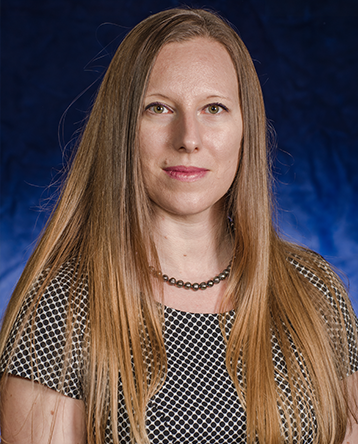Noa Marom
Professor, Materials Science and Engineering
Professor, Materials Science and Engineering

Noa Marom received a B.A. in physics and a B.S. in materials engineering, both cum laude, from the Technion-Israel Institute of Technology in 2003. From 2002 to 2004 she worked as an application engineer in the Process Development and Control Division of Applied Materials. In 2010 she received a Ph.D. in chemistry from the Weizmann Institute of Science. She was awarded the Shimon Reich Memorial Prize of Excellence for her thesis. She then pursued postdoctoral research at the Institute for Computational Engineering and Sciences (ICES) at the University of Texas at Austin.
From 2013 to 2016 she was an assistant professor in the Physics and Engineering Physics (PEP) Department at Tulane University. In 2016 she joined the Materials Science and Engineering Department at Carnegie Mellon University as an assistant professor. In 2021 she was promoted to associated professor. She holds courtesy appointments in the Department of Chemistry and the Department of Physics. She is a member of the Pittsburgh Quantum Institute (PQI) and an affiliate of the Scott Institute for Energy Innovation. She also serves as an Associate Editor of npj Computational Materials.
Her achievements in research and in large-scale computing have been recognized by several awards, including:
2010 Ph.D., Weizmann Institute of Science
2003 BA, Physics, Technion - Israel Institute of Technology
2003 BS, Materials Engineering, Technion - Israel Institute of Technology
Carnegie Mellon University
MSE’s Noa Marom has been elected as a Fellow of the American Physical Society (APS), which recognizes excellence in physics and exceptional service to the community.
Materials Science and Engineering
Noa Marom has been elected as a Fellow of the American Physical Society. The Fellowship is a distinguished honor, recognizing excellence in physics as well as exceptional service to the physics community.
Mellon College of Science
MSE’s Noa Marom used machine learning to identify potential semiconductor materials.
CMU Engineering
Four Ph.D. students in the College of Engineering have received funding to pursue research on valuable, relatively unexplored topics.
Materials Science and Engineering
A team CMU students combined quantum mechanical simulations, optimization algorithms, and machine learning to perform Crystal Structure Prediction (CSP).
Science Daily
MSE’s Noa Marom was mentioned by Science Daily about her research on topology for quantum computing.
American Chemical Society
MSE’s Noa Marom has been named a recipient of the American Chemical Society’s OpenEye Outstanding Junior Faculty Award. The competitive award is designed to recognize the work of rising faculty members and assist them in gaining visibility within the computational chemistry and modeling community.
Technology Networks
MSE’s Noa Marom was featured in Technology Networks about solar cell research.
Inside HPC
MSE’s Noa Marom has been selected to lead one of 10 data science projects to be part of the Argonne Leadership Computing Facility’s (ALCF) Aurora Early Science Program (ESP), the goal of which is to prepare key applications, libraries, and infrastructure for the architecture and scale of exascale computing.
Scott Institute
Funding from the Scott Institute will stimulate new research initiatives ranging from developing a tool that can help people assess the climate risks of hydroelectric projects globally to finding a way to produce semiconductors economically for use in ultra-high efficiency power electronic devices.